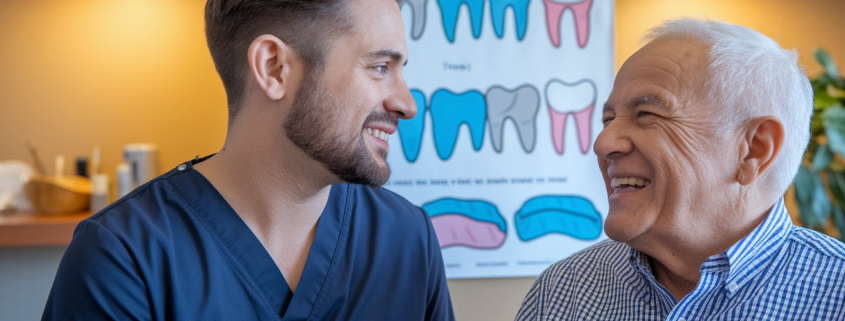Dental Care for Seniors: Common Issues and How to Prevent Them
Aging gracefully doesn’t stop at your skincare routine—your smile deserves just as much attention. As we grow older, our oral health needs change dramatically. From dry mouth to gum disease, seniors face a unique set of dental challenges that can affect their overall health and quality of life.
But here’s the good news: with the right preventative measures and regular checkups, many of these issues can be avoided. This blog will walk you through the most common dental problems seniors face and how to stay ahead of them with smart habits and strategic care.
TLDR – Quick Guide
- Seniors are more prone to oral health issues like dry mouth, gum disease, and tooth loss.
- Poor dental health can affect nutrition, heart health, and even cognitive function.
- Preventative care—brushing, flossing, fluoride, and regular dental visits—can reduce risks.
- Senior-specific dental products (like electric toothbrushes and dry mouth rinses) help maintain oral hygiene.
- Seeing a dentist with geriatric dental experience can significantly improve outcomes.
Detailed Breakdown
1. Dry Mouth (Xerostomia)
Often caused by medications or chronic conditions, dry mouth reduces saliva flow, increasing the risk of cavities and infections. Saliva helps neutralize acids and wash away food particles—less of it means more decay.
Prevention Tip:
Stay hydrated, use sugar-free gum to stimulate saliva, and consider saliva substitutes. Ask your doctor about medications contributing to dryness.
2. Gum Disease (Periodontal Disease)
Gum disease is extremely common in seniors and often goes unnoticed until it’s severe. It can lead to tooth loss and has been linked to heart disease and diabetes.
Prevention Tip:
Floss daily, use antimicrobial mouthwash, and get regular cleanings. If you notice bleeding gums or bad breath, see a dentist ASAP.
3. Tooth Loss and Denture Complications
Missing teeth can affect chewing, speech, and self-esteem. Dentures help, but they also require care and maintenance to avoid infections like oral thrush.
Prevention Tip:
Maintain good oral hygiene even with dentures. Soak them overnight and clean them daily with denture-specific cleaners—not toothpaste!
4. Oral Cancer
The risk of oral cancer increases with age. It often develops without pain, making early detection critical.
Prevention Tip:
Avoid tobacco and alcohol. Get annual oral cancer screenings—many dentists include this in your check-up.
5. Receding Gums and Root Decay
A lifetime of brushing and gum wear can expose tooth roots, which are more vulnerable to decay since they’re not protected by enamel.
Prevention Tip:
Use a soft-bristled brush or electric toothbrush and fluoride toothpaste. Ask your dentist about fluoride treatments for extra protection.
Key Takeaways
- Seniors are at higher risk for dental problems like dry mouth, gum disease, and oral cancer.
- Regular dental visits, proper home care, and targeted products can significantly reduce these risks.
- Preventative care improves quality of life, nutritional intake, and overall health.
- Dentures and implants require maintenance too—don’t skip cleanings just because you have fewer natural teeth.
- Working with a dentist experienced in senior care ensures more comprehensive and compassionate treatment.
FAQs
- How often should seniors visit the dentist?
Ideally, every six months—even if you have dentures. These visits help catch gum disease, oral cancer, and other issues early. - What are the best dental products for seniors?
Electric toothbrushes with pressure sensors, fluoride toothpaste, interdental brushes, and dry mouth rinses are all senior-friendly tools. - Can dental issues affect my overall health?
Yes! Poor oral health is linked to heart disease, diabetes, and cognitive decline. It also impacts nutrition, as tooth pain or loss makes chewing difficult. - Are implants a good option for older adults?
Yes, if you’re healthy enough for minor surgery and have sufficient jawbone density. Implants can offer better stability than dentures. - What should I do if my dentures cause sore spots?
See your dentist for an adjustment. Never try to modify them at home—it can worsen the fit and cause more discomfort or infection.




Leave a Reply
Want to join the discussion?Feel free to contribute!